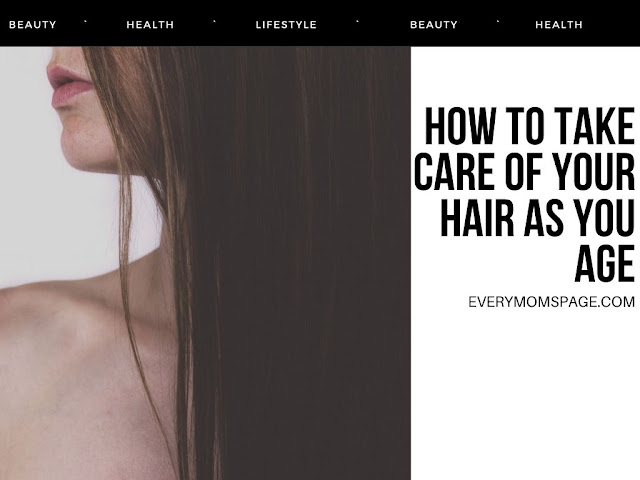How To Take Care of Your Hair as You Age
The aging process is inevitable and it does affect more than just our skin and bones. You might start finding more hair strands in the shower drain or notice that it is becoming drier each day. Indeed, your hair will not be as strong as it used to be or grow back as fast as it used to. The most you can do is take care of existing problems and take preventive measures to avoid losing more hair. The following is a simple guide on how to take care of your hair as you age.
Come to terms with the aging process
Exposure to the environment, toxic chemicals, and diet are
significant reasons you are experiencing hair loss. However, let’s not fail to
recognize that genetics and the aging process have a part to play in the way
your hair ages. Keep in mind that it is
not much you can do to change your genetics and not reverse aging. Therefore,
instead of wishing your hair would go back to its former glory, look at it as a
way to celebrate the many years you have lived.
Avoid putting tension on your hair
Yanking your hair out during combing or putting your hair in
tight ponytails will only damage your already-thinning hair and increase hair loss. It would help to gentler your hair and reduce tension on
your weak hair follicles as you age. Make a few adjustments, such as using a
wide-tooth comb and loosening your ponytails and buns.
Establish a healthy hair care routine
The best thing you can do for your hair is to start taking
care of it now. Avoid shampoos containing sulfates and alcohol that strip your
hair of the little oil it produces. Steer clear of heat treatments and avoid
exposing your hair to caustic chemicals in perms and bleaches. Stimulate your
scalp by massaging it with oils and use the reputable natural hair rejuvenation products and protein treatments to
add moisture back into your hair.
Understand your hormonal changes
As you grow older, the hormonal changes in your body affect
almost every part of your body. Both your hair and hair follicles begin to
shrink, leading to thinning the hair. When the hair follicles shrink, you begin
to lose more hair, which does not grow back as fast as it used to. The oil
glands on your scalp also stop replenishing themselves, leading to dry and
frizzy hair, as well as scalp tightness.
Find ways to decompress
Stress is not only bad for your mental health, but it is
also not good for your hair. Many individuals have reported losing more hair due to bouts of stress. For starters, ensure you get enough
sleep to give your body a chance to heal itself. Incorporate stress management
techniques such as meditation and journaling for healthy hair. Make time for
the things you love and practice self-care.
Final remarks
Well, don’t forget to eat a healthy, balanced diet with
vitamins and nutrients such as iron, biotin, and omega-3. It will take time to
see a positive change in your hair. However, if you are patient and consistent
with your hair care routine, you will start to see positive changes.



